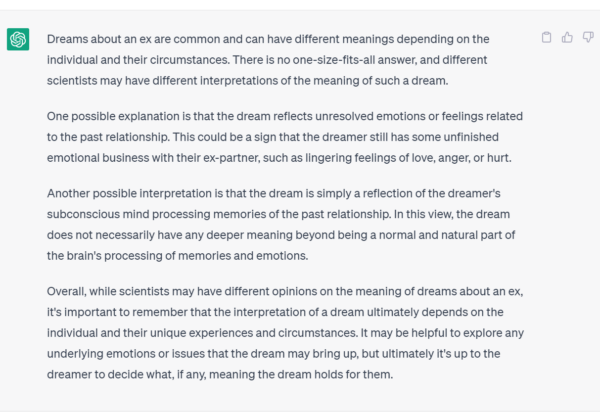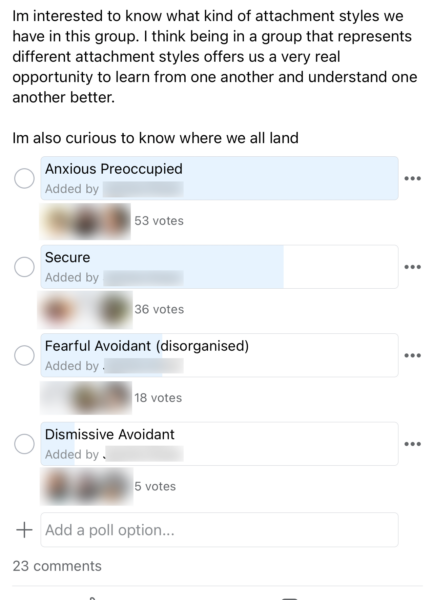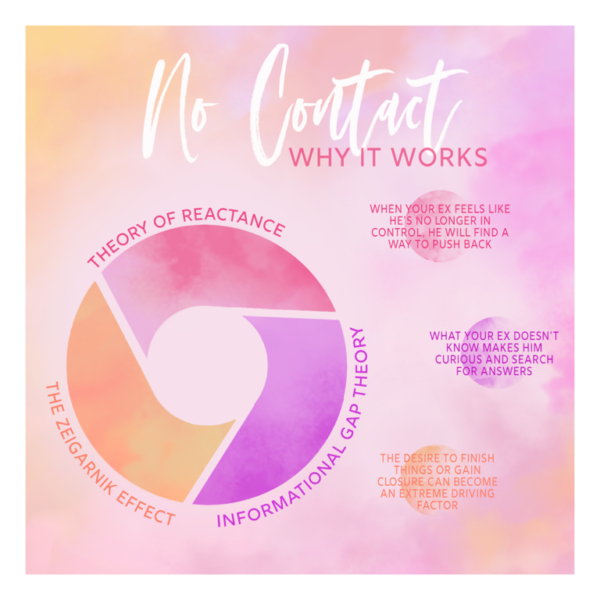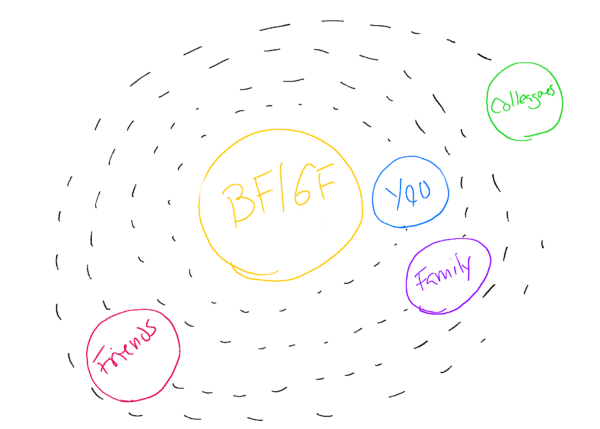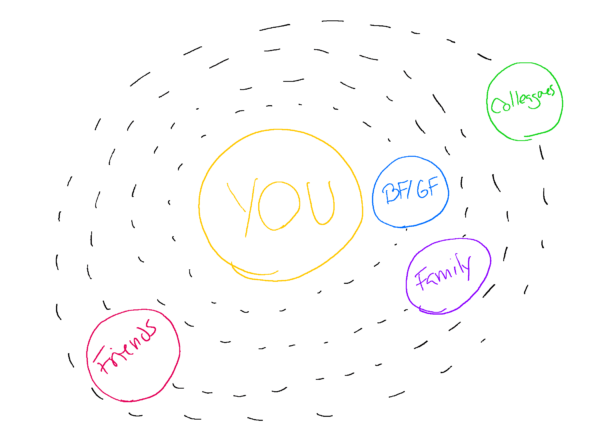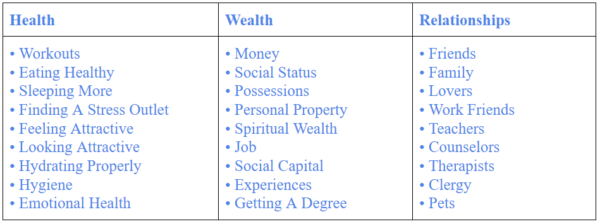This is a complete guide to help you stop dreaming of your ex.
In this in-depth guide you’ll learn,
- If your dreams about your ex actually mean anything
- How the work starts before you even go to sleep
- The importance of finding something you care about more than your ex
- How to create a positive sleep environment
- The correct way to journal
- The huge impact meditating can have
So, if you’re ready to stop dreaming about your ex then let’s dive in and get started!

What Are Your Chances of Getting Your Ex Boyfriend Back?
Take the quizDo dreams about your ex mean anything?
This is something that scientists have been studying for years.
And the funny thing about it is, there’s no overall consensus on their meaning.
Therefore, the best anyone can do for you when it comes to pinning down a meaning about a dream about your ex is to give you basically a hypothesis.
And to prove that point, I actually decided to read this entire article.
It was the number one result on Google. And what fascinated me about it is how all kinds of experts had different takes on the meanings of dreams.
So basically, here’s a quick summary because I know most people don’t have the patience to read something that’s 4,000 words.
But as you read through my quick summary what I really want you to focus on is just how many different thought processes all these reputable sources have about the meaning of dreams.
For example, the ancient Egyptians believed that dreams were a way of seeing, while the ancient Greeks and Romans believed dreams could predict the future or connect us to the dead.
- Sigmund Freud thought dreams were a way of expressing our secret desires, which were often sexual.
- Carl Jung thought dreams were shaped energy.
- And modern psychologists and neurologists believe that dreams may help us process memories and keep us alert to danger or dump excess data from our brains.
But let’s have some real fun with this.
Let’s ask Chat GPT. I’m actually very curious about what AI has to think.
So basically, it believes that dreams about an ex mean two things.
- One possible explanation is that the dream reflects unresolved emotions or feelings related to the past relationship.
- Another possible interpretation is that the dream is simply a reflection of the dreamer’s subconscious mind processing memories of the past relationship.
Here’s the main takeaway:
Every single reputable source has a different idea of what dreams mean. There’s not really any great science to definitively prove,
“Hey, when you’re dreaming about your ex, it really means this thing.”
And we’re getting away from the main point of this article, which is: How do you stop dreaming about an ex?
Let’s tackle that now.
How In The World Do I Stop Dreaming About My Ex?
I think the question should actually be reframed to:
How do I get a good night’s sleep?
Because generally speaking, getting a good nights sleep equates to not having dreams about your ex.

What Are Your Chances of Getting Your Ex Boyfriend Back?
Take the quizIn my opinion, it boils down to five simple steps.
- The work starts before you even go to sleep.
- Find something you care about more than your ex.
- Create a positive sleeping environment.
- Journal the right way.
- Meditate before bed.
I know these sound somewhat cliché, but I promise we’re going to have an interesting twist on each one of them.
So let’s start from the top.
Step #1: The Work Starts Before You Even Go To Sleep
Alright, so we know from studying our client base that most of the people who come to us have an anxious attachment style.
And this is important, especially when it comes to dreams, because one thing that I personally believe is that the more you’re thinking about someone, the more your anxiety is up, the more your cortisol is raised, the more likely you are to have a potentially negative dream or just a dream in general about something you don’t want to be dreaming about.
Now maybe that’s not scientifically proven, but I’m just drawing from my own personal experience.
Anytime that I’ve ever worried about something, I usually either have a horrible night’s sleep or I dream about “that worry.”
And really, I think the important thing is your work, if you want a good night’s sleep, starts before you even go to sleep.
You’re going to start working on moving on from your ex.
And your weapon of choice is the no contact rule!
Now, one of the more unique ways that I believe our brand stands out is the fact that we utilize the no contact rule a little bit differently than some of our peers.
Our peers usually use the no contact rule as a way to manipulate an ex and make the ex miss you. But we’ve actually found through actual studies and field research that the no contact rule is really at its best when you’re using it to move on from your ex, because if you move on from your ex.
If you do that it can actually make them more likely to miss you and potentially want to come back. So the first thing you need to do is cut off contact iva a no contact rule.
The second step of our dreaming process revolves around finding something you care about more than your ex.
Step #2: Find Something You Care More About Than Your Ex
I can’t claim credit for this.
This is something that our success stories taught me.
A couple of years ago, when I started interviewing success stories and posting them live on my podcast, I started looking for the golden thread that would connect each and every one.
Surely there had to be a pattern, right?
And there was.
The pattern was that each of the people who were successful at getting their exes back got to a place emotionally where they were okay without their ex. In other words, they found something that they cared about actually more than their ex.
Often, when we’re in relationships, I like to look at us as our own solar systems.

What Are Your Chances of Getting Your Ex Boyfriend Back?
Take the quizSo when we’re in a relationship with our ex, if you actually look at your time in that relationship with your ex, you’ll find that it’s not them that revolves around your sun, it’s you revolving around their sun.
So your solar system is completely out of whack when they basically kick you out of their solar system.
The point I’m trying to make is if you can find something that you care about more than your ex, if you can find other things that can revolve around you, it will help you heal.
And this is also very closely tied with the no contact rule. Like I said, the no contact rule works best if you’re working on moving on from your ex, even if you don’t want to move on from your ex.
And the way to move on from your ex is to find something that you care about more or just as much as your ex, so it kind of replaces them on your own personal pedestal.
Half this battle is knocking them down off the pedestal (which I talk about extensively in this video,)
But what you do you replace them with on your own personal pedestal?
Well, you replace them with your magnum opus, your life’s greatest achievement, your greatest work, the one thing you want to be remembered for when you pass away.
Ok great, but how do you find that?
First you need to understand our concept of the Holy Trinity.
The Holy Trinity is basically this idea I created that helps you divide your life up into three distinct categories:
- health
- wealth
- relationships
The idea is that you’re trying to constantly balance these three elements of your life. Your magnum opus, the thing that you’re supposed to care about more than your ex, is basically the intersection of all three elements of the Trinity.
I talk about that in this video,
But basically, if you don’t want to watch the video, the magnum opus is the one thing that you can do that properly help or improves all three aspects of the trinity at once.
Now, what does that look like in the real world?
Well, for me, it’s writing a book.
- Not only can I financially benefit from writing a book (Wealth)
- But I can meet new people, hire an editor, be friends with an editor (Relationships)
- Which is also great for my mental health. (Health)
So in doing this one thing, I address all three areas. I found the intersection.

What Are Your Chances of Getting Your Ex Boyfriend Back?
Take the quizIf you can find your magnum opus, it will really go a long way in helping you find something you care about more than your ex.
Step #3: Creating A Positive Sleeping Environment
This is where we get down to the tactical approach to stopping your potential obsession of dreaming about your ex.
There are a number of things that are considered best practices when you want to create a positive sleeping environment.
- Investing In Good Bedding
- Darkness
- Noise Reduction
- Temperature Control
- Aromatherapy
- The Bedtime Routine
Let’s briefly (and I mean briefly) discuss these six best practices.
Invest In Bedding
This means looking at quality mattresses, pillows, and beddings that will suit your personal preferences.
Everyone is different, so choose what feels best for you.
Darkness
The next thing is darkness. Ensure that your bedroom is adequately darkened during sleep. It’s interesting because my wife specifically tells me that one of the issues I have is the fact that I’m always watching my iPad before I go to sleep, so I don’t have a completely darkened area.
While I turn the lights off, I’m watching my iPad and the light gets into my eyes, making it a bit more difficult to drift off into sleep when I actually do try to sleep.
I actually think there’s some research behind this as well,
Maybe it’s not an apples to apples comparison but it is interesting nonetheless.
Noise Reduction
Next, consider noise reduction.
Minimize any disruptive noises that can disturb your sleep. Sometimes using white noise or trying something like green noise, which has been proven to help with depression and calming anxiety, can assist with falling asleep.
You’ve probably seen those “green noise” commercials I’ve been seeing all over the place promoting this,
Temperature Control
Temperature control is also important.
I personally sleep with my thermostat set around 72 degrees.
However, when I was researching for this article, I found that the ideal sleeping temperature is typically between (60 and 67 degrees Fahrenheit) or (15 and 19 degrees Celsius.)
Personally, I think that’s way too cold, but it is considered the ideal temperature for sleep.
Perhaps that’s why I sleep better during the winter months than the summer months.
Aromatherapy
Some people find value in aromatherapy, using essential oils such as lavender, chamomile, or jasmine to create a soothing atmosphere.
Using a diffuser or placing a few drops on a cloth near your bed can be beneficial.
A Consistent Bedtime Routine
But perhaps the most helpful thing for you would be to stick to a constant bedtime routine.
Set a specific time for lights out and try to establish a pattern that your body can adjust to.
I recently wrote an article discussing the idea of consistently staying in a pattern. It can take longer than you think for a pattern to become ingrained.
Many people believe it takes 21 days to make or break a habit, but in reality, it can take up to 66 days.
So if you truly want to improve your chances of stopping dreams about your ex, you need to consistently stick to this routine, even after the no contact rule is over.
Step #4: Journaling
The key component of journaling that I want to discuss is the importance of getting your thoughts out before you go to sleep.
However, it’s crucial to journal in the right way.
What’s really interesting about journaling is that it has various positive effects.
It allows you to take a step back and evaluate your thoughts, explore solutions in a unique way, and serves as a therapeutic outlet for expressing your thoughts and feelings.
It can also lower your emotional reactivity towards others.
However, there is a potential downside to journaling, particularly after a breakup. Often, we are plagued by negative thoughts such as blaming ourselves for the breakup or feeling that our ex will never love us again. Focusing too much on that one thing your ex said when they broke up with you can also be detrimental.
Sometimes, when you constantly journal and describe these negative thoughts, it can have a negative impact on your well-being.
It can make you overly absorbed in your own thoughts and prevent you from fully experiencing life. It can also become a vehicle for blame rather than seeking solutions, and it may lead to dwelling on negative events that have happened to you.
To support this point, I came across an article on Psychology Today written by Steven Stosny, PhD, where he argues that journaling can have a negative effect on behavior and well-being.
Common negative thoughts can turn you into a passive observer of your life, constantly thinking about how you’ll record it rather than actively experiencing what will happen. It can also make you self-obsessed and focused on blame rather than finding solutions.
So, my concern with journaling too much before bed revolves around the idea that you may be journaling negative thoughts.
I think it’s really important that you take a page out of the law of attraction playbook, where you imagine potential positive solutions for yourself.
It has been found that people who tend to deal with grief better are generally more optimistic and as a result have better outcomes.
Therefore, when you journal right before bed, it’s crucial to focus on positive things. It may sound a bit unconventional, but I believe you need to journal about potential positive outcomes.
Here’s a prime example of one journaling thought,
“I’m going to (insert action), and as a result this (insert positive result) will happen.”
On a more personal note, my wife is constantly trying to get me to do a vision board which is very much in line with how I want you to be journaling. Only positivity, no negativity.
If you make this a part of your bedtime routine, as discussed in the previous step, you will likely experience great results. I’m not suggesting that writing down your desired outcome guarantees its realization, but it puts you in the right frame of mind and creates a healthier environment before falling asleep.
Step #5: Mindful Meditation Before Bed
The final, and perhaps one of the most underrated aspects, is the idea of meditating before bed.
I came across an interesting article in the National Library of Medicine, which stated,
That scientists have found that mindfulness meditation can help improve sleep quality for individuals with sleep problems.
To exemplify this, have you watched the new Disney Plus documentary by Chris Hemsworth, Limitless?
(And no, I’m not talking about the Bradley Cooper movie.)
In it, he explores various elements of living a longer life.
But the part that is of particular note to us is the episode he did on the concept of stress.
Dr. Modupe Akinola, Columbia Business School professor and social psychologist, essentially follows him around and makes him face his fears by participating in firefighting.
She teaches him a technique called box breathing, where you inhale for four seconds, hold for four seconds, exhale for four seconds, and hold for four seconds, and repeat.
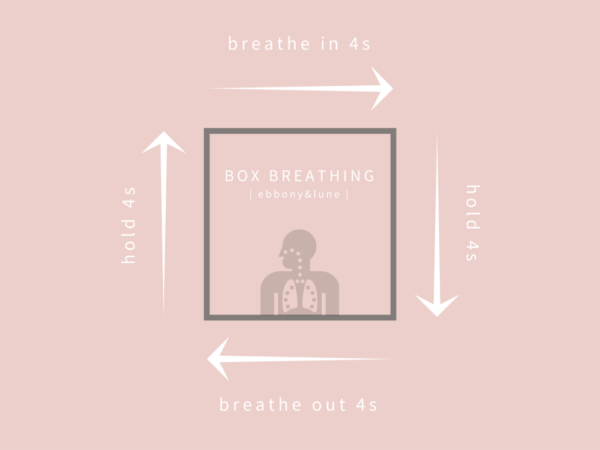
Image Credit: https://www.ebbonyandlune.com/blog/box-breathing
During the firefighting exercise, his heart rate spiked, and although the box breathing didn’t work well due to the chaotic activity, it was after the firefighter test that blew me away.
The documentary was filmed in Asutralia and one of the requirements for firefighters after a particular rough day fighting fires is to sit them all in a room and force them to practice mindfulness meditation.
They engaged in the box breathing technique, closing their eyes, inhaling for four seconds, holding for four seconds, exhaling for four seconds, and holding for four seconds, repeating the process. Since the episode was about stress they attached a heart rate monitor to Hemsworth and watched in real time as his heart rate decreased along with his stress levels.
I believe it’s essential to include this aspect in your bedtime routine.
After journaling, you can start meditating, engaging in box breathing or other mindfulness practices. Once you have lowered your heart rate and reduced stress through meditation, you can then proceed to sleep.
